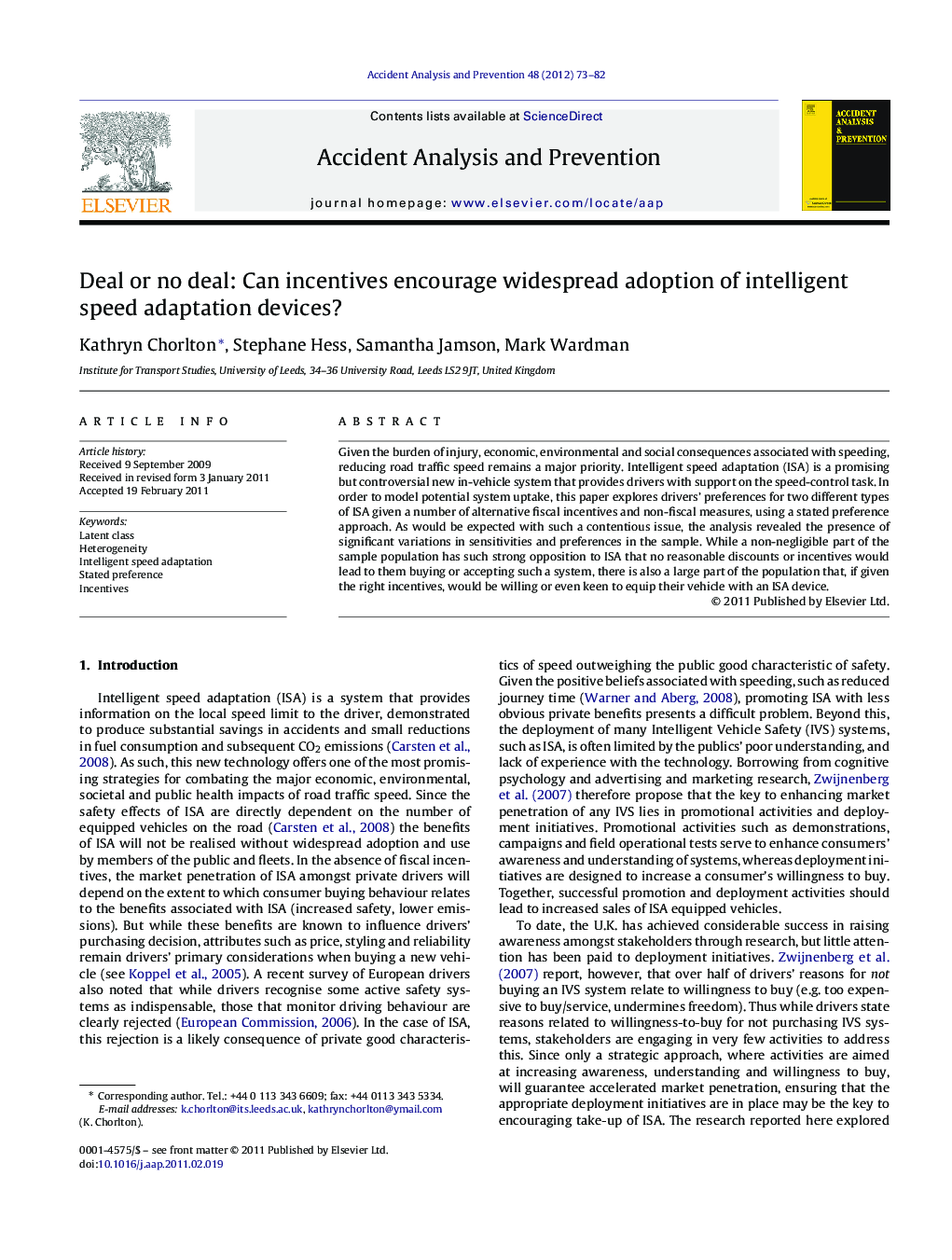| Article ID | Journal | Published Year | Pages | File Type |
|---|---|---|---|---|
| 572575 | Accident Analysis & Prevention | 2012 | 10 Pages |
Given the burden of injury, economic, environmental and social consequences associated with speeding, reducing road traffic speed remains a major priority. Intelligent speed adaptation (ISA) is a promising but controversial new in-vehicle system that provides drivers with support on the speed-control task. In order to model potential system uptake, this paper explores drivers’ preferences for two different types of ISA given a number of alternative fiscal incentives and non-fiscal measures, using a stated preference approach. As would be expected with such a contentious issue, the analysis revealed the presence of significant variations in sensitivities and preferences in the sample. While a non-negligible part of the sample population has such strong opposition to ISA that no reasonable discounts or incentives would lead to them buying or accepting such a system, there is also a large part of the population that, if given the right incentives, would be willing or even keen to equip their vehicle with an ISA device.
► We modelled drivers’ preference for two types of Intelligent Speed Adaptation. ► Fiscal and non-fiscal incentives to buy explored using Stated Preference approach. ► Range of required incentives across respondents was extreme. ► Non negligible group who would not buy ISA given any reasonable incentive. ► Large part of population would buy ISA given right incentives.
